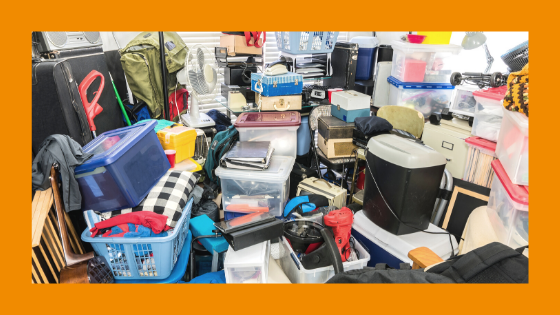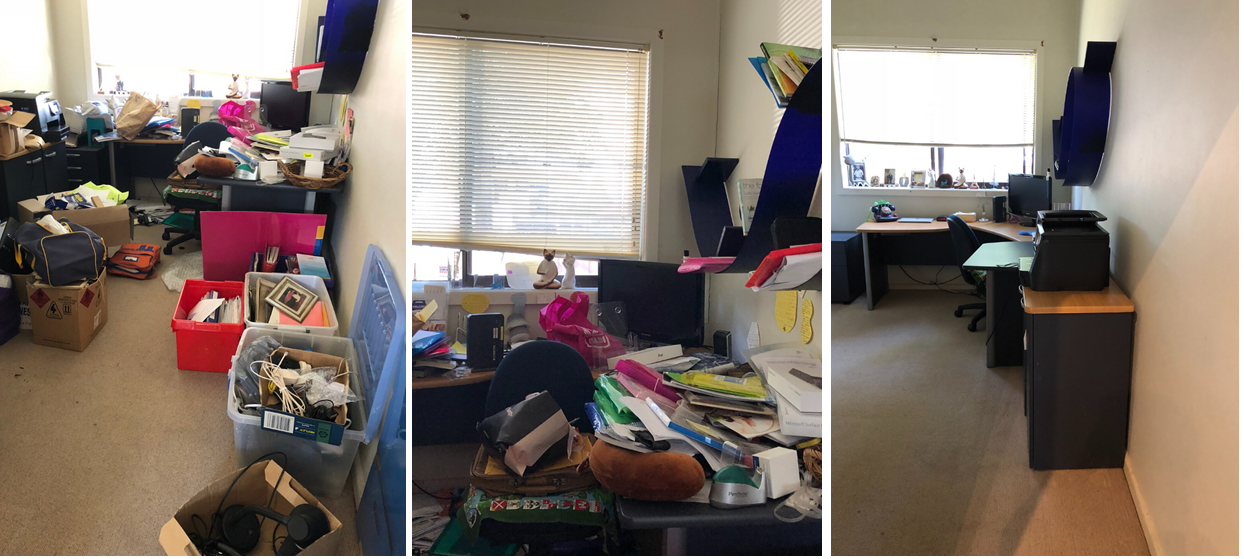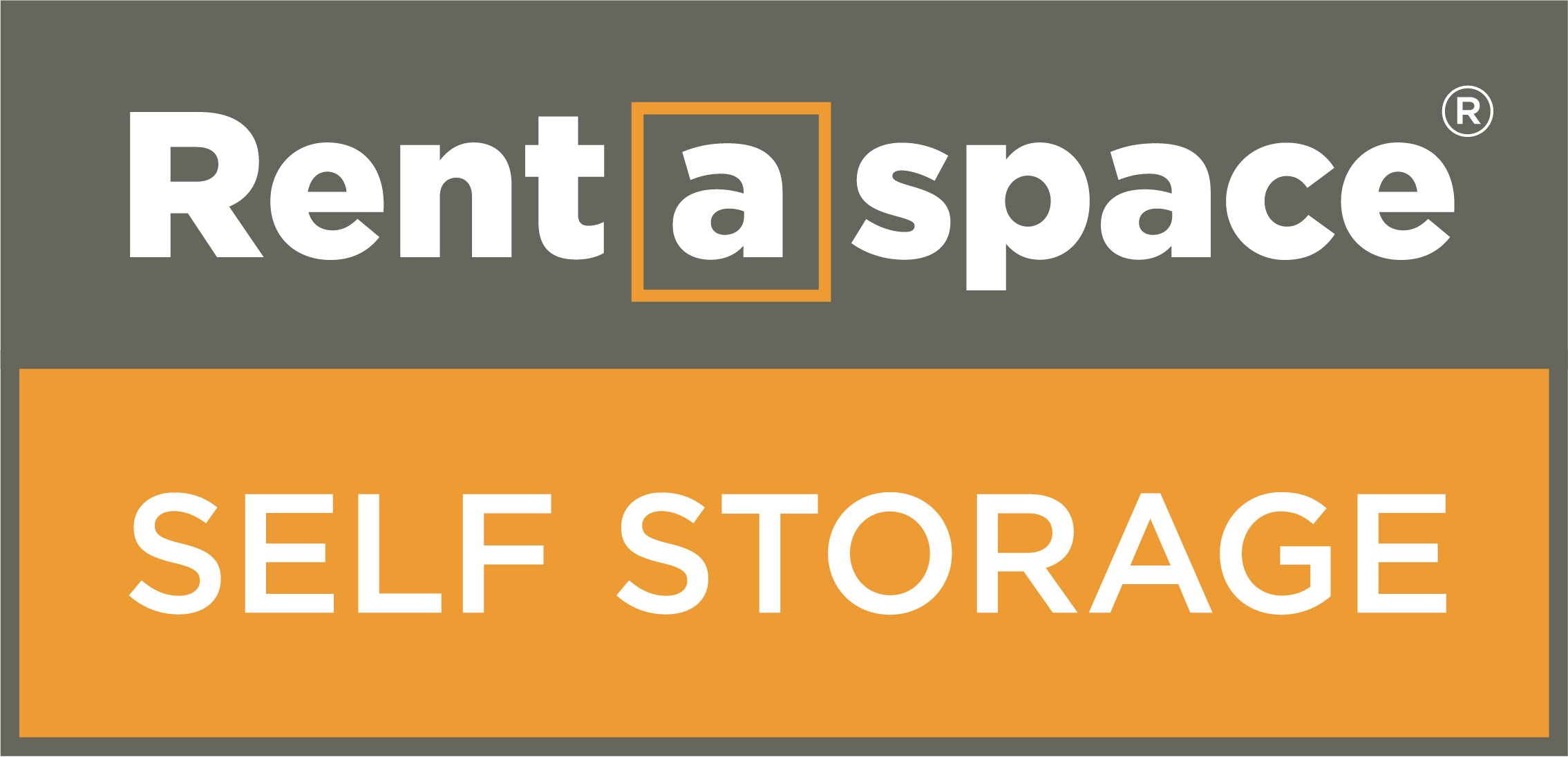
Is clutter making you crazy?
Do you waste a lot of time looking for things? Do you keep on buying things because you can’t find where you’ve put them? Do you find yourself thinking “I won’t throw this out, I might need it someday”? Do you need to reorganise and reclaim your space?
In this guest blog, Decluttered Living’s Marlene Alan (Australia’s answer to Marie Kondo) shares her best tips on how to address the mess, get organised and declutter your life.
We live in a society driven by consumerism. As a result, we amass a significant amount of “stuff” that we don’t need, because acquiring “stuff” is what we do well – whether it’s due to “retail therapy”, succumbing to advertising or the desire to have the latest and greatest.
All too soon, we end up with a house full of items and “stuff” has taken over. We try to tidy it, but once all the cupboards and wardrobes are full and there’s no place left to store the rest, what do we do?
We hold onto it. And usually buy more.
We bring this stuff into our home because we think we might use it one day. Usually we end up forgeting about it, so it keeps accumulating out of control, resulting in an untidy, disorganised house and confusing mess. Regardless of how much cleaning and tidying we do, our home never looks like it has been cleaned properly and soon we start to lose precious living space. After a while, inertia gets the better of us and it gets too hard to tidy it, too hard to let go of it and we just don’t have the appetite to deal with it.
Before we know it, we have a clutter problem.
What exactly is clutter?
The popular definition is that it is stuff or things that lie around in an untidy mess, like your paper-piled desk or clothes-strewn room. Others regard clutter as a postponed decision, a lack of control or a lack of awareness about what is and isn’t important.
My definition is much simpler – if it doesn’t bring you joy, it’s clutter (and you should let it go).
Clutter is anything that we keep around our house (or office) that does not add value to our life – from books, to clothing to paperwork. Clutter is anything that we don’t use, don’t know the purpose of or remember why we’re hanging onto it. Clutter comes from the things that we don’t have a place for.
Clutter has different impacts in our life. Beyond the untidiness it creates, the external clutter that surrounds us is quite often a reflection of the clutter that we have within.
Here is an example of how it can show up in our life.
“When we have negative thoughts, this can affect our anxiety levels. When we are anxious, we don’t sleep well and this affects our ability to focus. Without focus, it takes a longer time to complete something which results in feeling overwhelmed.
This leads to procrastination where tasks that requires completion are delayed until it becomes too big to manage so it doesn’t get done. This creates the external clutter which is the accumulation of things around the home and provides more negative thoughts that results in more internal clutter.”
Most household in Australia experience different stages of clutter. We’re busy, we don’t have time to properly sort and organise belongings. The good news is that an untidy desk or bedroom does not make you a hoarder.
I’ve worked with clients who can’t access a spare bedroom or garage because of the clutter caused by an excess of poorly organised stuff, or the shoes, clothes and accessories that they haven’t worn in 5 years, and helped them to reclaim their living space, and reclaim their lives in the process.
Declutter your life and take control
Cleaning and decluttering are two different things – they have different purposes. Once you have decluttered, you may need to clean but cleaning is NOT decluttering.
Think of decluttering as a process where unnecessary items are removed from an area in order to make it more pleasant and more useful. When you go through your things one by one, identify which ones are still needed and make a decision to keep or dispose of these items.
It sounds simple in theory and the sorting process is – just allocate it into piles that you’ll keep, donate, trash or put into a self storage facility like Rent A Space.
It’s the commitment to declutter that can be hard. Quite often there are items that are of sentimental value but you can’t sell, donate or throw them away and they’re taking up precious living space. These items can be drawings and school projects that your kids have done, photographs, keepsakes and memorabilia, or gifts or family heirlooms that you inherited and have to hang on to.

That’s where a storage unit comes in handy. It is a practical solution for keeping those items you hardly use, or use only once a year, like Christmas trees and decorations, seasonal items like bulky camping equipment, sporting goods, pool equipment and excess furniture. They take up precious space in your garage or spare room – space that can be put to much better use.
If you have a home office, home business or corporate office, your clutter is often the paper kind – old invoices, project details, quotes can take over desk and filing cabinet space.
Excess furniture, office supplies and even inventory can also build up. To declutter, pack old paperwork into archive boxes, labelled by year and store in a storage unit to save valuable space. Self storage is also ideal for storing excess equipment, furniture and inventory and using the floorplan of your premises more effectively.
Declutter journeys begin with small steps
When you take the first step to start to declutter, apart from (in addition to) the satisfaction you will gain from taking control, you will also experience other benefits that you may not expect:
- Saving money
- Improving relationship
- Discovering lost items that are precious to you
- Easily locating items
- Saving time
- Improving productivity
- Increasing creativity
- A home or office that is easier to tidy and clean
Marlene Alan’s 8 Steps to Decluttered Living
A decluttered life is fulfilling. It provides you with a great sense of inner peace and contentment, regardless of what happens in your life. It is not impossible to achieve this and here are eight steps to help you get started:
1. Identify the clutter in your life
Clutter creates chaos in your life. It costs you time, money, and your personal relationships. Identify what clutter you want to work on. Review the items that are not needed or useful and sort into piles. If this is not physically possible, label them with a sticky label or coloured sticker – Keep, Donate, Trash, Store.
2. Set a SMART Goal
Now that you have identified the clutter you want to work on, create and write a Specific, Measurable, Achievable, Realistic and Timely goal. Here’s an example of how to apply this. The scenario is a messy drawer that needs to be decluttered and organized.
Specific – “I will declutter the items in the drawer and organize it so I can easily locate the items and create more storage space.”
Measurable – “When I finish decluttering and organizing this drawer, it will only have things I need, and these items will be neatly organized and can be easily located.”
Achievable – you need to ensure that the goal you set is achievable. If not, review and change the goal.
Realistic – the goal has to be realistic for you to complete, otherwise, you may give up before you even get started.
Timely – place a specific time frame when this goal will be completed. If no time line is set, the goal will continue on without being accomplished.
3. Take action.
Nothing will happen unless you commit to the goal you set and do something about it. Action creates momentum, so even if the start is a bit slow going, just keep on it and things will start flowing.
4. Be Accountable or get an Accountability Buddy.
Find someone who will remind you about your goal. Your buddy will help you be accountable to yourself.
5. Track your progress.
Be honest in monitoring your progress in the completion of this goal. This will empower you to power through when all is working well.
6. Review and re-evaluate.
This is where you can observe if the goal is achievable and realistic so that it can be amended when required.
7. Keep yourself inspired.
Be inspired with the success stories of others who have completed the same goal. Focus on what is working for them, what works for them may also work for you.
8. Be patient.
Just like any process that is new, it may take time. What matters is that you are continuously taking action and persevering until your goal is achieved.
A few declutter do’s and don’ts
Don’t make the mistake of going back through the bags of the piles of stuff that you have decluttered – you’ll be tempted to take a few things back and before you know it, you will lose momentum and have to start again.
Don’t keep things just in case you need them next week or next month or next year – that will set you back and you’ll be in the same situation all over again.
Do take a photo of your clutter before your start, so you can see the progress that you have made. Do take things step by step – you didn’t end up with all this stuff overnight and you won’t clear it out in a few hours either.
Most importantly, do take a deep breath, stay focused on your goal and have fun on your journey to Decluttered Living!
 Decluttered Living is founded by Marlene Alan, a Declutter Coach who helps people put their lives together by organizing their living and personal spaces.
Decluttered Living is founded by Marlene Alan, a Declutter Coach who helps people put their lives together by organizing their living and personal spaces.
For years, Marlene has been helping those who struggle with cluttered living spaces which affect their home lives, businesses, time, and personal relationships. Decluttered Living provides systems, ideas, and structures on how to organize and maintain a clutter-free life. In addition to this, Marlene is also a Certified Life Coach. Not only can she help you declutter your physical space, but also help you achieve greater clarity and inner peace in all aspects of your life. Contact her on 0481 988 708 or declutteredlivingwma@gmail.com

